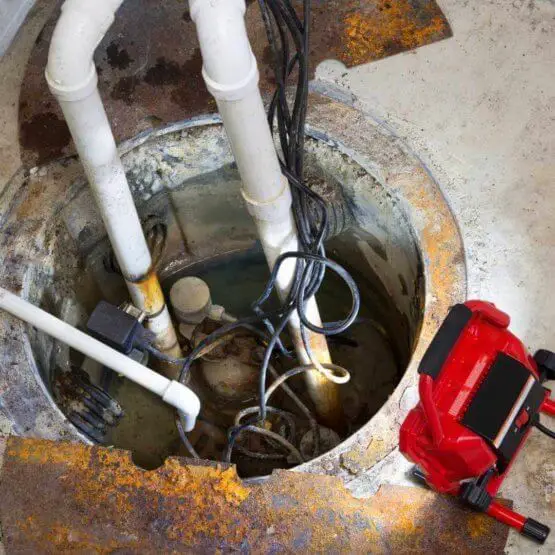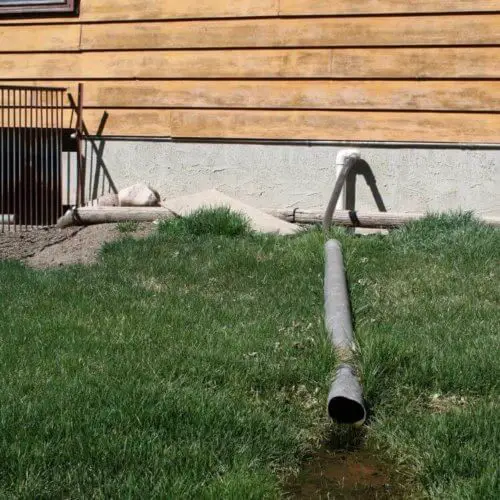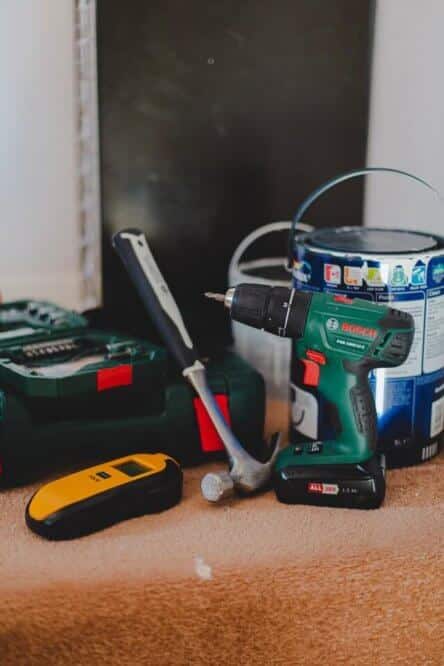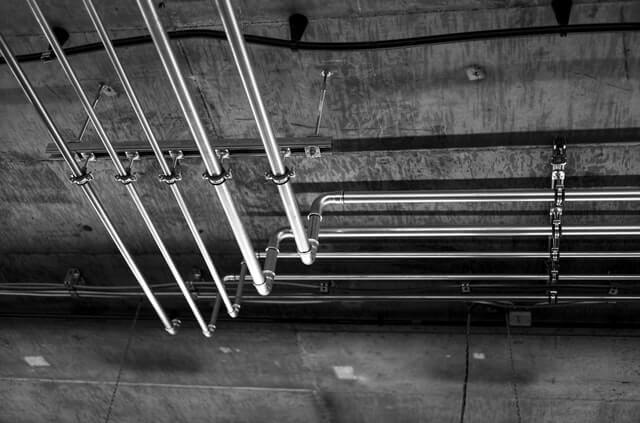The plumbing system in our house is key to keeping water flowing through our house as well as keeping the place safe from water damage. We have a sump pump among the available ways of mitigating all the issues we can run into. When it works properly, everything is fine but what happens when we have a sump pump running every 5 minutes?
Utility of a sump pump

The sump pump is meant to protect our basement from flooding and excess water. We should take care of flooding like this because it leads to extreme problems with the structural integrity of our whole household. Having our walls go damp can be problematic in the grand scheme of things.
A sump pump can suck out the water consistently before it becomes a problem. Any sump pump of decent power will be enough to keep our basement safe. The sump pump activates automatically to prevent the water influx from getting out of hand.
Bigger basements will need a bigger sump pump, so explore what power you’ll need before purchasing any. Take ample time scouting out an appropriate brand and power. Keep in mind the specifications and make sure they fit your household. Compatibility remains paramount.
Sump pump running every 5 minutes
Our basement requires proper treatment to stay healthy. While it’s a better option than a crawl space or plain foundation, the basement still requires maintenance. Taking some time out of our schedule to deal with potential troubles brewing is the best way to maintain an untroubled basement.
One of these problems will be flooding, which has a simple resolution in the form of a sump pump. Sump pumps are made to prevent flooding and dampness in the basement. With a sump pump installed, we’ll have to deal with any sump pump problems we face.
The issues most commonly associated with the sump pump affect its operation. Working too often or not at all will be the most common problem. Among those, the sump pump running every few minutes is exceptionally common.
Of course, as with most issues, this one has many causes. We will delve into them later down the line. But, first, we’ll quickly look into some of the downsides this will cause to our home.
Structural damage
With constant dampness and moisture, we will quickly experience structural integrity issues. The walls may be made to withstand a lot of pressure, but water can easily creep into the tiny pores and keep diving deep.
The more it pierces our walls, the higher the chance there will be internal problems with the structure. Structural damage will remain even if we solve the problem that caused it, so it pays to prevent it in the first place.
Mold
As you can imagine, constant water and moisture will lead to mold forming within the basement. Our basement is already a cold enough place to fit the mold, but with this final ingredient, it’s likely for it to show up. Mold can spell trouble for any basement because it will keep spreading.
Creeping into the wall just like water, damaging the structure and items in the basement. In certain situations, mold may spread further into the house, which makes the problem even worse.
Electricity bill
As you can imagine, the sump pump working the whole time will spike our electricity bill by quite a decent amount. Of course, the actual cost increase will depend on the sump pump’s power, but the expenses will be noticeable nonetheless.
These expenses are entirely meaningless and don’t indicate necessary operating costs. The longer we avoid fixing the problem, the higher its overall financial cost will be. Therefore, it pays to resolve the problem early. That way, you’ll save money even if the particular malfunction you experience is costlier.
Early failure
Your basement and bills won’t be the only thing that suffers. The sump pump itself will end up failing far sooner if you allow it to operate continuously. A lot of empty work wears out the components, making the entire sump pump last for a shorter time.
Due to the constant on and offs, it’s possible to experience problems with the electrical aspects of the sump pump too. Eventually culminating in said sump pump failing to start. Usually, the sump pump lasts up to 10 years. [1]
How often should a sump pump run?

The sump pump should only run when there’s water in the basement. Depending on your place, that sump pump will be working more or less often. This will depend on the amount of water flowing into your basement.
The most common situations where we can expect the sump pump to run more often are floods and periods of heavy rain. However, even without these, this device could have a more frequent operation.
Some locations have high water tables, which means there’s far more water accumulating in the area. This can be due to periods of high rain, the wetness of the soil, or the climate of the area. Regardless of the reason, it will come back to affect the operation of our sump pump. [2]
In decently humid areas, a sump pump will work around twice or thrice a day. The length of this each operating cycle will usually go on for a few minutes. These instances will often occur hours from each other, which will be easily noticeable by tracking the overall activity of our sump pump.
As you can assume, even with these qualifications, a sump pump running every 5 minutes is too often. That means the sump pump that runs this often has something wrong going on with it. This could be related to a plumbing issue, hard-to-notice flooding of our basement, or our sump pump malfunction. The constant working of a sump pump is quite troublesome, so knowing the problems behind the situation is useful.
Problems with sump pump

The constant running of the sump pump doesn’t happen without a proper cause. A cause will often be a malfunction with the sump pump or some other part of our plumbing. Here are some of the most common malfunctions.
Issues with the sump pump check valve
The sump pump is made to evacuate water from the basement, sending it upwards. When it goes high enough, the water enters a discharge line. The discharge line is made in a way where it leads water far away from our house.
However, when the sump pump stops working the water in the pipe will come back, turning the sump pump back on and making a constant cycle.
To resolve this problem, we need a check valve. A check valve stops water from returning into the sump pump and starting an endless loop. Make sure to add this important part to your sump pump if it isn’t present already or if you are planning on doing a DIY sump pump installation.
Of course, problems can happen to the check valve itself. In that case, you’ll need to either fix or replace it. Check valves last around 5 to 7 years so replacing them as often is usually the best. You want to avoid the problem of constantly running the sump pump, if possible, as the loop described before can harm our sump pump. [3]
Sprinkler system malfunction
This is an indirect issue that leads to problems with the sump pump, but sprinkler system malfunction may be responsible for your issues. Sprinkler systems have their pipes run underground from the water source and towards the sprinklers properly.
However, between the starting and ending points, we can see issues cropping up. For example, water leaking from the pipe underground or the water source itself could lead to it pooling in the basement.
Once it does, the basement’s sump pump will be triggered by this leaking water. However, due to the sprinkler system still being turned on, water will constantly flow in.
As it continues, the sump pump will keep circulating water which can lead to it running every few minutes. The issue of malfunctioning sprinkler systems can get even worse due to it potentially leading to foundation damage.
The sump pit is too big
Our sump pump will require a sump pit in the basement. A sump pit is where the water from the basement will end up pooling into. We have to dig it out just deep enough where it will allow water to pool, so explore the proper dimensions for a sump pit.
However, digging a sump pit that’s too big will cause some problems. While a regular sump pit works perfectly for our sump pump, one that’s too deep will actively make our sump pump work too often. That can lead to premature failure of our sump pump, especially if said sump pump is left to work for too long.
Aiming for the proper size of a sump pit is the best way to secure a properly functioning and healthy sump pump. This appropriate size will depend on the influx of water we expect as well as the size of the basement.
There are ample other factors that can affect it, so it pays to explore what the best size of a sump pit is for your specific situation. [5]
Read Also: Should You Avoid House With Sump Pump
These examples above should give you enough troubleshooting notes for your sump pump running every 5 minutes. If your sump pump runs even faster, the symptoms of the problem can get worse quickly.
Negligence is the quickest way to have your plumbing issues get out of hand. Take this issue as a warning sign of greater problems to come and inspect the plumbing installations appropriately.
Conclusion
A sump pump working this often is a problem to consider resolving. We should identify the source of it as soon as possible and take action soon. Any prolonged period that the issue persists can be catastrophic for our home’s financial and structural health.
We’ve only covered the most common problems associated with these issues. If none fit, make sure to seek professional help. As noted above, preventing the problem from getting out of hand is the best way to minimize its effects on our house.

Michael Davis is a heating & plumbing expert who currently works as independent contractor in SC. He also writes for Plumbertip.
For almost 10 years he worked on various plumbing tasks across South Carolina.



